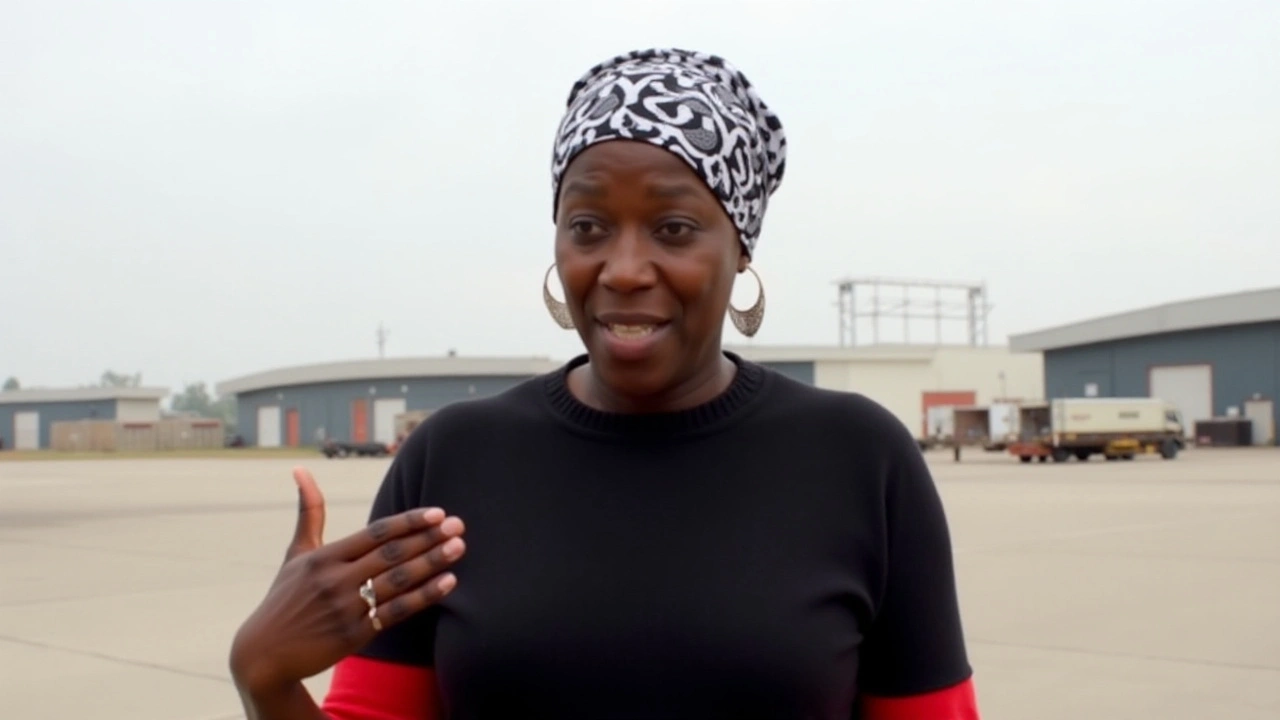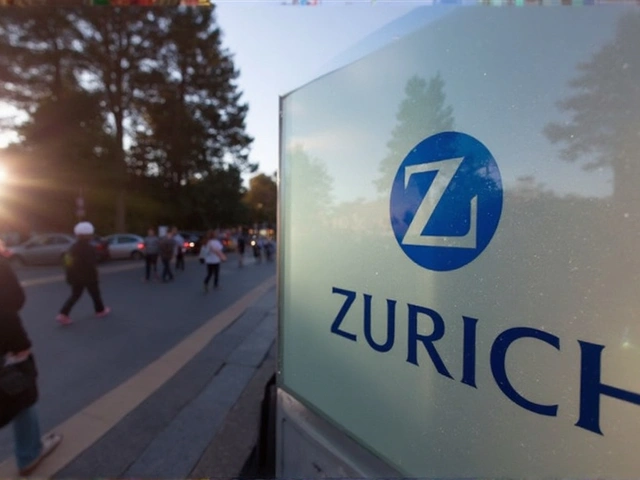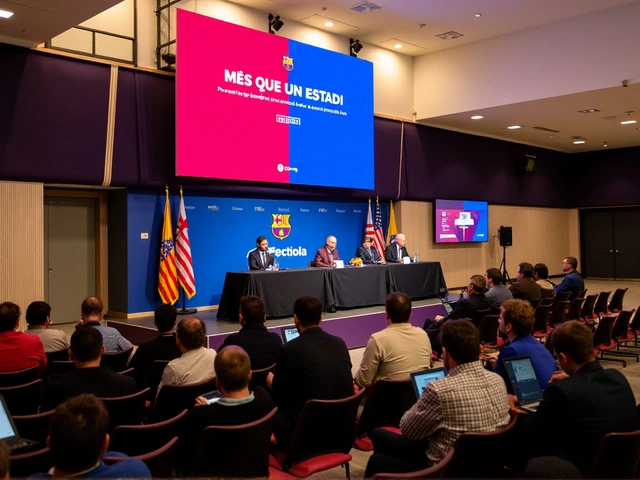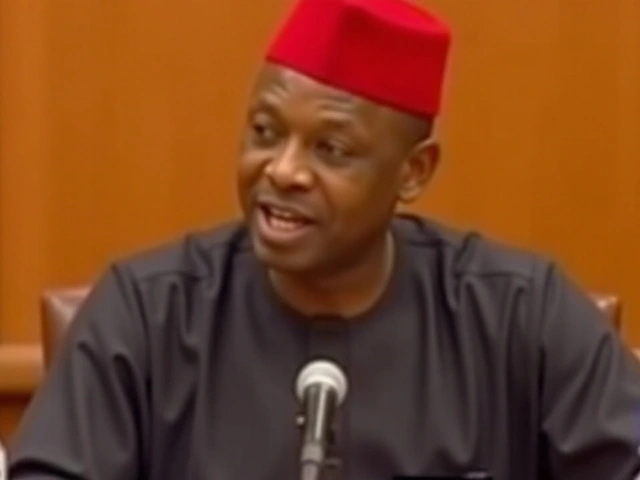The Arrest and Detention of Speed Darlington
Nigerian artist Darlington Achakpo, widely known as Speed Darlington, finds himself at the center of a complex legal saga that has captivated public attention. His arrest in Lagos in October, sparked by a petition from fellow musician Damini Ogulu, popularly known as Burna Boy, marked the beginning of an ordeal that has raised questions about lawful detentions and judiciary compliance. The allegations, which revolve around defamation and cyberstalking, seem to stem from the intense rivalries and controversies often seen within the entertainment industry.
Upon his arrest, Speed Darlington was released on bail on October 8, seemingly allowing him a brief respite before being rearrested and transferred to Abuja in November. This chain of events has triggered debates regarding the role of law enforcement and their accountability in adhering to judicial directions. Public discourse has further delved into the dynamics between influential figures and legal repercussions in Nigeria’s music industry.
Judiciary's Role and the Ignored Orders
Justice Musa Liman of the Federal High Court in Abuja played a significant role in this ongoing drama by issuing a directive for Speed Darlington's release. His court ordered the Inspector General of Police, Kayode Egbetokun, to either proceed with formal charges or release the artist unconditionally within 48 hours. The judicial decision ostensibly reflects the court's recognition of potential overreach in detaining the singer without formal charges.
However, the stipulated 48 hours have elapsed with no action from the police, resulting in a glaring non-compliance with the court's order. This scenario paints a troubling picture of the enforcement of legal decisions and poses critical questions about the tension between judiciary directives and law enforcement in Nigeria. Society's perception of justice is once again put to the test as people watch the unfolding situation with bated breath.
Legal Parliament and Emphasis on Human Rights
Leading the fight for Speed Darlington's release is his dedicated legal team, headed by Deji Adeyanju. The counsel has been ardent in highlighting the unlawful nature of his continued detention, bringing to light significant legal and human rights issues. Identified under the ex-parte motion FHC/ABJ/CS/1832/2024 filed on December 13, the law team insists on a prompt release while awaiting the determination of a substantive motion.
This legal battle is not just an individual’s pursuit of freedom. It underscores broader themes of human rights, exploring how individuals can safeguard themselves against arbitrary detention. The appeal for the court to consider bail on more lenient terms only reflects a deep concern for justice and proper legal procedures. Through these legal maneuverings, Speed Darlington's representation emphasizes the importance of adherence to human rights obligations, resonating with wider audiences who cherish these principles.
Public Interest and Media Attention
The detention and subsequent legal proceedings of Speed Darlington have not gone unnoticed by the public or the media. The coverage has shone a light on potential gaps between legal pronouncements and their execution. It’s a story that speaks to everyday Nigerians, many of whom seek assurances that justice will be executed impartially, irrespective of one’s status or influence.
Media attention acts as an additional pressure lever on the authorities, shedding continued light on actions, or in this case, inactions of law enforcement. Media and public scrutiny may, in essence, become pivotal elements in ensuring that justice prevails, putting a spotlight on systemic issues within law enforcement that invite necessary reforms.
The Future of This Legal Case
As the January 2025 hearing looms on the horizon, all eyes are now on both the judiciary and the police. While some might hope for an expedient resolution to ensure compliance with legal mandates, others see this as an opportunity to engage in meaningful discussions about the relationship between the law and its enforcers. In the meantime, Speed Darlington finds himself in a peculiar limbo, his fate hanging in the balance while both public opinion and legal processes play out.
The need to resolve this situation might lead to critical policy discussions going forth, perhaps resulting in measures that ensure improved accountability from law enforcement agencies regarding court orders. Whatever the outcome, this incident has undeniably sparked vital conversations about justice, enforcement, and the interplay between the law and societal values in Nigeria today.







Comments
Mark Archuleta
This isn't just about Speed Darlington-it's about systemic judicial erosion in Nigeria. The police ignoring a federal court order sets a dangerous precedent. If the IG can bypass a judge's directive without consequence, what's stopping them from detaining anyone? The legal framework exists, but enforcement is performative. We need independent oversight bodies, not just moral outrage. The courts need teeth, and the public needs to stop treating this as entertainment.
Pete Thompson
You people are missing the point entirely. This isn't about human rights-it's about accountability. Burna Boy filed a petition, the courts acted, and now the police are being 'slow'. But let’s be real: if this were a politician or a billionaire, they’d be out in 24 hours. This is class warfare disguised as justice. The system doesn’t care about artists-it cares about who you know. The real crime here is the illusion of equality under the law.
Richard Berry
idk man i just saw a clip of speed darlington laughing in court like he was at a concert and now im confused is he in jail or on vacation? like the whole thing feels so surreal. also why is this even a thing? people fight over beats and lyrics and now its in court??
Sandy Everett
It’s heartbreaking to see someone held without charge for so long. No matter who you are, being stripped of your freedom without due process is a violation of basic dignity. I hope his legal team keeps pushing. And to everyone saying 'it's just music drama'-this isn’t about music. It’s about whether the state can act with impunity. We can’t normalize that.
J Mavrikos
I’ve been following this since day one. The fact that the police haven’t moved on the 48-hour order is a flat-out insult to the rule of law. Nigeria’s judiciary is one of the few institutions still holding some ground. If we let this slide, what’s next? Cops detaining journalists? Students? This is the moment we either stand up or become complicit.
Stuart Sandman
Let’s not pretend this is about justice. The whole thing smells like a Western-backed psyop. Burna Boy? He’s got ties to London elites who hate African artists who don’t kiss their boots. The police? They’re just playing along with the script. This isn’t a legal case-it’s a cultural purge. The courts are puppets, and the media’s just the stage lights. Wake up. This is how they silence real African voices.
DJ Paterson
There’s a quiet violence in bureaucracy. Not the kind with sirens or batons, but the kind that drags its feet for weeks while a man sits in a cell, waiting for someone to remember he exists. The court issued an order. The police ignored it. No one’s fired. No one’s问责. That’s not negligence-it’s a system designed to exhaust people until they stop asking. Speed Darlington isn’t just detained. He’s being erased by procedure.
Nikhil nilkhan
Bro, i feel you. In india we have same thing sometimes-celebs get arrested, then released after 1 day because their lawyers are rich. But this? This is different. It’s like the system is playing chess and he’s just a pawn. Hope he gets out soon. The music world needs him. Also, the beat on his last track was fire.
Damini Nichinnamettlu
This is why Nigeria will never progress. Weak institutions, lazy police, and artists acting like children. Burna Boy didn’t do anything wrong-he just reported defamation. Speed Darlington should’ve kept his mouth shut. If you can’t handle criticism, don’t be famous. The courts should’ve charged him immediately, not wasted time. This is embarrassing for Nigeria.
Vinod Pillai
The police are doing their job. The court order is nonsense. You can't just let someone who publicly threatens and stalks another artist walk free because he's famous. This isn't about human rights-it's about protecting citizens from harassment. The judge is out of touch. The law is clear: if you commit cyberstalking, you get detained. No exceptions. Let him rot until the trial. He deserves it.